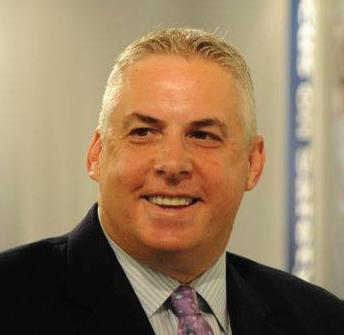 Mark Fogel
Mark Fogel was shocked to learn that his multinational company was unknowingly engaged in unethical practices overseas. Here’s what he did to fix it
During his time serving as CHRO of a major manufacturing organisation, Mark Fogel always believed his employees were provided with safe, healthy, and well-regulated working conditions, no matter their role or location. That all changed during one revealing trip to Southeast China.
“When I was at Leviton, the first two times we went to China our operations team led us on tours through the factories, but we only saw what they wanted to show us,” Fogel says. “On a subsequent visit, I declined the tour and said I wanted to tour on my own. That’s when the curtain came down and I saw what was really going on – they were presenting an image that wasn’t truthful of what was happening in the factories and dormitories.”
Some of the major issues Fogel came across included faulty plumbing and insufficient hot water for showers.
“I found a lot of issues affecting people’s hygiene and living conditions that were unacceptable to me,” he says.
ENFORCING VALUES
Fogel demanded immediate change. “The first thing I did was have a meeting with senior management at the factory. I didn’t ask; I told them that they were going to remediate these issues within 24 hours,” Fogel says. “Before I left, those conditions had to be fixed.”
He also reached out to Leviton’s executives in the US, and informed them of his findings. Although the factories may have passed compliance measures in China, Fogel insisted on a higher threshold.
“When I found those substandard conditions, I acted upon them regardless of cultural norms. For HR folks, one of the key elements of working in other countries is understanding what living conditions and cultural norms are there, but also calibrating them to an adequate level of acceptability.”
In both manufacturing firms where Fogel has served as HR chief, his roles have moved beyond merely ticking off legal requirements and instead they have transformed into ‘humane leadership’ positions.
“At Leviton and Marcum, we had a very high standard for working outside of our borders. We didn’t accept ‘Well, this is just the way we do it in our country’,” he says. “I think the litmus test is if you had your own teenager working in that situation, would it be acceptable to you?”
BRAND BENEFIT
Fogel brought into effect a wide range of other improvements too. He made sure pregnant women wore coloured vests to indicate that they should not be exposed to chemicals or high-risk areas, and that buildings passed regular maintenance inspections in regions where factories are often neglected because it’s so easy to construct new facilities.
Outside of the moral imperative dictating these efforts, it’s also clearly necessary for the business brand to be well regarded in the global community.
“The last thing you want,” says Fogel, “is to be Apple computers dealing with Foxconn, and waking up to find that your subcontracted factory was on the front page of every newspaper and news service around the world for a hygiene or human rights violation.”
THE FAIR LABOR ASSOCIATION
Following Apple’s Foxconn controversy the company joined the Fair Labor Association (FLA) and, in doing so, it agreed to abide by the FLA’s Workplace Code of Conduct throughout its supply chain. Launched in 1999 by a coalition of industry (including Nike), labour and non-profit advocacy groups, the FLA assesses working conditions and monitors attempts to remedy violations in factories, farms and facilities used by its affiliated companies. Independent assessors schedule random visits to facilities supplying participating companies. Further information: fairlabor.org
This feature is from HRD's September issue. Grab a copy now to read more!


 Mark Fogel was shocked to learn that his multinational company was unknowingly engaged in unethical practices overseas. Here’s what he did to fix it
Mark Fogel was shocked to learn that his multinational company was unknowingly engaged in unethical practices overseas. Here’s what he did to fix it